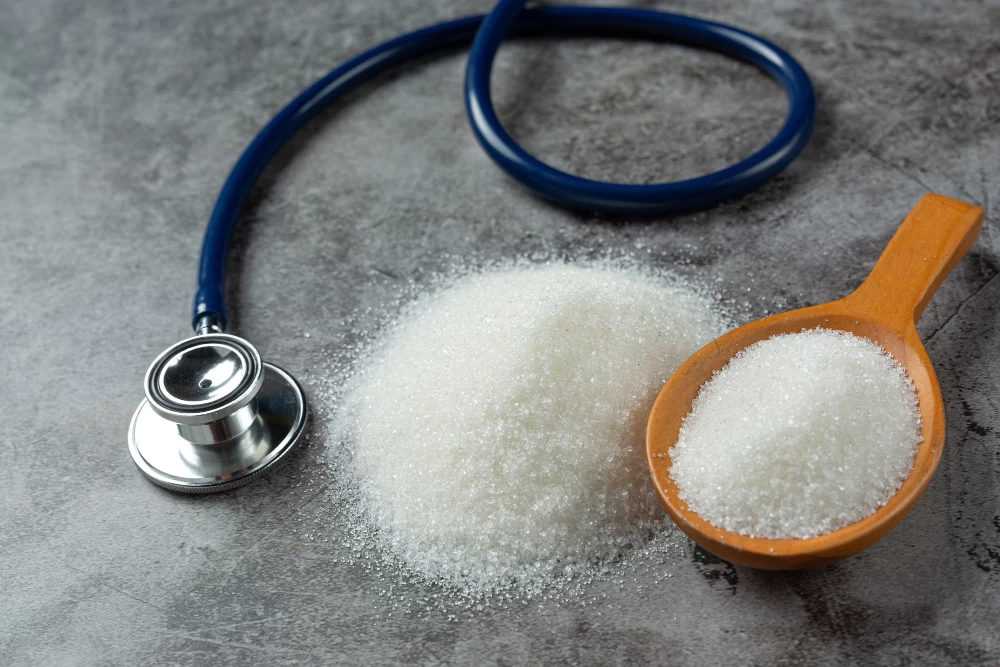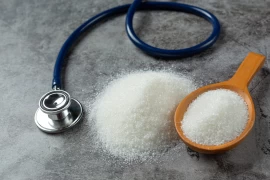
Insulin Resistance: Causes, Symptoms and Treatment Methods
- Insulin Resistance: Causes, Symptoms and Treatment Methods
- What is Insulin?
- What is Insulin Resistance?
- What are the Causes of Insulin Resistance?
- What are the Disorders Caused by Insulin Resistance?
- What should be done to prevent the formation of insulin resistance?
- What are the Treatment Methods for Insulin Resistance?
What is Insulin?
Insulin is a hormone produced in an organ called the pancreas. It regulates blood sugar (glucose) level. After eating, the digestive system releases glucose into the blood and the blood glucose level rises. This rise is regulated by the secretion of the hormone insulin by beta cells in the pancreas. Insulin helps lower blood sugar by allowing glucose in the bloodstream to enter the cells. Insulin also regulates the metabolism of carbohydrates, proteins and fats in the body. Conditions such as insulin deficiency or insulin resistance can cause problems in regulating blood sugar levels and lead to diabetes.
What is Insulin Resistance?
Insulin resistance is a condition in which the body responds less than normal to the insulin it produces. This means that the cells cannot use insulin properly. Under normal conditions, the pancreas produces insulin and secretes it into the bloodstream. Insulin helps cells convert glucose into energy and regulates the level of glucose in the blood.
However, in people with insulin resistance, cells respond less than normal to insulin and do not get enough glucose. Therefore, the pancreas tries to produce more insulin, but over time, the pancreas gets tired and insulin production decreases. In this case, it can cause blood sugar to rise and increase the risk of diabetes.
What are the Causes of Insulin Resistance?
There are several factors that can lead to insulin resistance. Some of them are as follows:
- * Lack of physical activity: Lack of regular physical activity makes it difficult for the body to properly use glucose and respond to insulin.
- * Overweight or obesity: In overweight or obese people, the body may need more insulin, which can lead to insulin resistance.
- * Genetic factors: The presence of genes that predispose to insulin resistance may increase the risk of developing insulin resistance.
- * Age: The risk of insulin resistance increases with age.
- * Hormonal disorders: Hormonal disorders such as polycystic ovary syndrome, hypothyroidism, Cushing's syndrome can also cause insulin resistance.
- * Smoking: Smoking can cause insulin resistance.
- * Sleep apnea: Sleep apnea can cause insulin resistance by lowering the body's oxygen levels.
- * Stress: Chronic stress can increase insulin resistance.
When one or more of these factors come together, the risk of insulin resistance may increase. Adopting a healthy lifestyle is important for reducing the risk of insulin resistance.
What are the Disorders Caused by Insulin Resistance?
Insulin resistance can cause uncontrolled blood sugar and high blood sugar levels. This can lead to various health problems. Complications that may occur due to insulin resistance include:
- * Type 2 Diabetes: Insulin resistance increases the risk of developing type 2 diabetes. This disease is a condition in which blood sugar levels are high and can cause chronic health problems.
- * Metabolic Syndrome: When high blood sugar levels are combined with other risk factors such as high blood pressure, high triglyceride levels and low HDL cholesterol levels, a condition called metabolic syndrome can occur.
- * Heart Diseases: Insulin resistance increases the risk of heart disease. This disease can cause heart attack, stroke, and other heart problems.
- * High Blood Pressure: Insulin resistance increases the risk of high blood pressure. It can cause high blood pressure, heart disease, kidney disease, and other health problems.
- * Fatty Liver: Insulin resistance can cause fatty liver disease. This disease is characterized by fatty buildup of the liver and can cause serious health problems.
What should be done to prevent the formation of insulin resistance?
To reduce the risk of insulin resistance, you can follow the recommendations below:
- * Healthy diet: A healthy diet can reduce the risk of insulin resistance. Avoiding refined sugar, white flour, and processed foods and adopting a diet rich in whole grains, vegetables, fruits, and protein sources can be beneficial.
- * Regular physical activity: Regular exercise can reduce the risk of insulin resistance. At least 150 minutes of moderate-intensity exercise per week is recommended.
- * Weight control: If you are overweight, losing weight can reduce the risk of insulin resistance.
- * Sleep patterns: Getting enough sleep can reduce the risk of insulin resistance. It is recommended to sleep at least 7 hours a night.
- * Stress management: Avoiding stressful situations or learning to cope with stress can reduce the risk of insulin resistance.
- * Avoiding smoking and alcohol use: Smoking and excessive alcohol consumption can increase the risk of insulin resistance. Therefore, it is important to avoid smoking and alcohol use.
- * Health monitoring: Some health problems can increase the risk of insulin resistance. For example, hormonal disorders such as hypothyroidism or polycystic ovary syndrome. That's why it's important to have regular health checkups and talk to your doctor if needed.
These recommendations are just a few of the steps you can take to reduce the risk of insulin resistance. Adopting a healthy lifestyle can help reduce the risk of insulin resistance and contribute to a healthy life.
What are the Treatment Methods for Insulin Resistance?
Treatment of insulin resistance depends on the underlying factors that cause insulin resistance. First of all, lifestyle arrangements such as nutrition and exercise take priority. Medical treatment options are as follows;
- * Medication: Some medications can be used to treat insulin resistance. Metformin is one of the most commonly used drugs in the treatment of insulin resistance.
- * Hormonal therapy: Hormonal disorders such as polycystic ovary syndrome can cause insulin resistance. Hormonal therapy may be useful in the treatment of insulin resistance.
- * Surgical treatment: In some cases, bariatric surgery can be used to treat insulin resistance.
Treatment of insulin resistance depends on many factors, and each patient's treatment plan is individualized. That's why it's important to talk to your doctor to determine your treatment plan.





